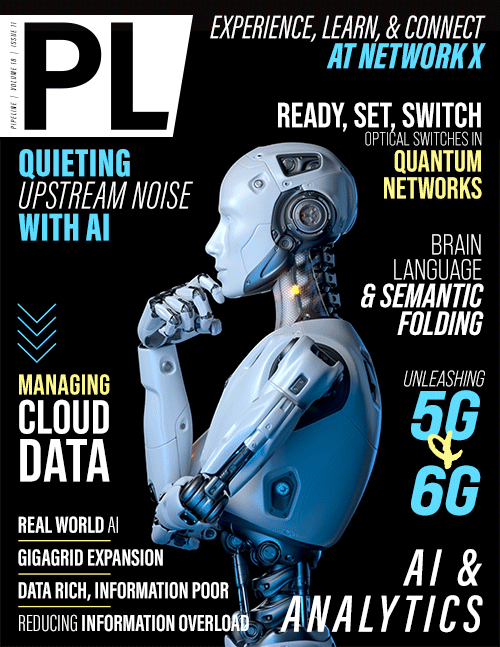Letter from the Editor

Every minute of every day we are inundated with information. Chirps, blurps, and drips from our phones, laptops, and watches fill the air throughout the day. Digital billboards pepper the skyline. Every screen we look at is wrapped in tickers, floating boxes, and pop-ups. Every inch of live events is blanketed in advertisements. Each day is filled with video conference calls, slack notifications, chats, emails, headlines, posts, and on and on.
It's really no surprise that the Information Age is overcome with information. But, it's also been said that the definition of multi-tasking is doing multiple things poorly at the same time. So, how are we to manage? For starters unplug, disconnect, shutdown, and take a break. Go out and get some sunshine and fresh air. Take a breadth and time to think about the things that are truly important. Family, friends, and the time spent with them. Once you center yourself around that, I believe you will come to the realization that there must be a better way. In fact there is, and technology is here to help.
It may be hard to believe, as technology seems to be the mechanism by which information pours into every crevice of our lives. That may be true today, and let's be honest, it's gotten a bit out of hand. But a fundamental change is happening, and it’s happening now. Technology is now being used to better manage technology. Technology such as artificial intelligence (AI), previously thought of as science fiction, is now being used in real life today. It's being used to manage networks, devices, and communicate with customers. It's helping optimize supply chains, automate manufacturing, and even fight the pandemic. Advanced analytics are providing deeper insights into computing, communications, and making information more accessible, quicker to find, and easier to digest. But we're not quite there yet.
Artificial intelligence needs to become, well, more intelligent. While AI may be able to beat you at a chess game, it still can't set the board. It also has difficulty, as anyone who has tried getting help using an AI-chatbot can tell you, understanding complex matrices of information such as human languages. But that's not that far off, as strides in semantic folding and quantum computing are gaining real traction. Meanwhile, everyone from Tesla to Boston Robotics is racing to combine AI intelligence with advanced robotics (robot watchdogs will be featured in the next issue of Pipeline).
The simple fact is businesses that are leveraging advanced analytics and AI automation are winning. They are driving down costs, engaging better with their customers, better contending with business continuity in hybrid environments, and optimizing operations. They are spending more time with their families and sleeping better at night. So where can you start? How can you begin on this journey, to break free from the shackles of information that keep us chained to our desks and workstations? This is why this issue of Pipeline is so important.
In this issue of Pipeline, we look at various applications of AI and aspects of advanced analytics. Starmind shows us how AI can be applied to reduce information overload and SparkCognition shares its perspectives on real-world AI use cases. Promptlink shows us how AI is being used to localize network noise in HFC networks. Cortical.io discusses language as a brain model for semantic folding, and how it can be applied for automation and AI. HUBER+SUNER explores the evolution of networks and the role of all-optical switches for quantum computing. ETSI shares its ZSM (zero-touch network and Service Management) framework to unleash 5G and 6G with the help of AI automation. FNT software tells us how combining location intelligence and georeferenced information in a unified data model is accelerating gigagrid expansion for gigabit fiber-optic networks. SAP demonstrates how to master data in the cloud. Mobileum discusses how deep analytics can improve QoE for 5G networks and services. And in a special article, Informa shares a preview for its upcoming Network X 2022 event in Amsterdam. All this plus the latest enterprise and communications technology news and more.
We hope you enjoy this and every issue of Pipeline,
Scott St. John
Managing Editor
Pipeline
Follow on Twitter | Follow on LinkedIn | Follow Pipeline![]()



















